YYANKEE ANKEE PPROSE ROSE





Dear Colleagues,
I’m writing this message from the terminal in Bradley International Airport. In 30 minutes, I’ll board my flight to Baton Rouge to represent New England for the Donoff Cup, a Level 3 National Intersectional senior competition where each team includes players in the 55s, 60s, 65s, 70s, and 75s age groups
It’s been a long time since I’ve competed in a sanctioned event with both ratings (World Tennis Number now) and ranking points at stake. Even so, it feels very familiar to me, normal even. It’s something I used to do regularly, and something I’ve definitely missed over the past several years. After all, it was my experiences as a competitive player the love of competition, the desire to improve, the camaraderie with other players, and the mental challenges inherent to our sport that nudged me to become a Tennis Professional in the first place. And I’d like to think that my competitive experiences and past successes have always helped me relate to my students in a very real way.
I don’t imagine it’s any different for the majority of you. At some point in the past, playing our sport was undoubtedly a major part of your life. So… I’m left wondering the following about other New England Professionals:

When was the last time you played in a competitive event? Have your students ever seen you really play? If you don’t compete regularly, what would it take to entice you to play a tournament or league match?

I’d be willing to bet that many of your students would love to watch you play. Over the years, I’ve been amazed at how far groups of mine have traveled to watch me, to see if I practice what I preach. It’s always been a positive experience. It’s also been very good for my business. Spending time together and getting to know my students away from their weekly lessons has helped me build the long term relationships that a ll of us need to succeed. Don’t get me wrong, being a great player doesn’t automatically translate to becoming a great teaching professional Great teachers in any discipline must continually work on their craft. Winning tournaments doesn’t prepare us to manage groups, communicate clearly, diagnose technique, mentor staff, or run a business, but I believe that playing our sport does do two very important things:
It keeps us, as professionals, excited about and engaged in our sport helping to avoid burnout and complacency by reminding us just how much fun tennis should be. It enables us to better relate to the struggles our students go through when they play. I’ve always found that a personal story dealing with the same problem my student is having gives me instant street cred.
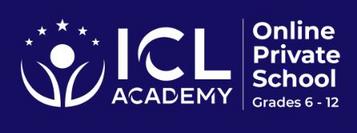

1. 2. The physical benefits of playing tennis are well documented. I believe that the financial benefits to our business can be just as great. I sincerely hope that all of us make a commitment to play more often, even if just for our own enjoyment We are, first and foremost, tennis players It’s likely how we think of ourselves We don’t just teach tennis We don’t just play tennis We are tennis players. We really ought to get out there and act like it!


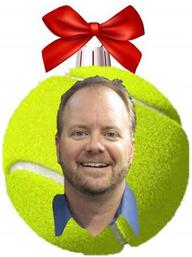



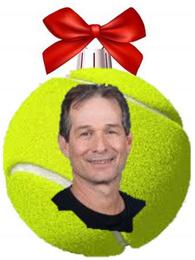
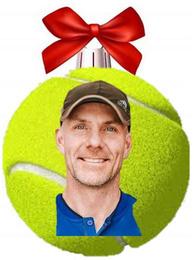







Interviews can be one of the most stressful and daunting experiences in your professional life. Anytime the unknown is obscure, there will always be indecision, doubt, intimidation, nervousness, and a feeling outside one’s comfort level.

To counter these characteristics, one should begin with the application process by gaining as much information on the position, the facility, and the hiring entity as you can. I am always amazed when a candidate has not properly researched the club/facility and properly prepared for the process. Know the answer to these minimum questions:
How many courts and type of courts (hard, soft, grass, indoor, pickle, paddle, lighted)?
How large is the membership and the median age of the members?
What type of candidate are they looking for, and the areas of expertise that are desired?
Who will be your immediate supervisor?
How large of a staff is in place or planned for a successful operation?
What type of club/facility (municipality, private, public, profit, non-profit, resort, commercial)?
A successful job interview works in a yin and yang fashion. The candidates are asked questions by the employer to determine if they are the right fit for the club/facility. At the same time, there are questions they may wish to ask the General Manager and/or the Search Committee:
How long have you been the General Manager at that club/facility?
How many Directors has the club/facility had in the last 10 years?
Is there a tennis or racquets committee? And what is their role?
How many personnel are currently active in the tennis department?
Who hires/fires the assistant professionals and who do they report to?
What would a typical work week look like? (What day(s) do you have off?)
Can you teach non-members for an upcharge fee?
Are you considered an employee or independent contractor?
Is there any type of retirement plan or benefits package?
Is there a meal allowance?
Can immediate family use club amenities such as pool and tennis?
Is there a relocation expense?
Is there a line item in the operating budget for tennis / pickle / paddle balls?
continued continued
What percentage of members live within three miles of the property?
How many families with children are members?
Is this a member equity club?
Are you at liberty to disclose what the total tennis department budget is? What percentage is that of the overall budget?
How does billing work? Members charge to account? Chits? Club accepts cash?
Who sets lesson rates?
Is there a brick-and-mortar office?
Is there a line item in the tennis department budget for: Continuing education? Professional dues?
Is there a maintenance or grounds crew to assistant with court maintenance?
Is the club open to hosting USTA-sanctioned events or outside events?

Everyone is familiar with the phrase, “You only get one chance to make a first impression!” Well, that begins with your resume and your cover letter. Your resume should have a professional appearance and convey your name and contact information; personal statement; educational background; work history (in reverse chronological order); professional designations; any relevant honors, awards, and significant achievements; and skills and/or work-related tools.
Some common pitfalls in preparing resumes may include:
Your name and contact information are not prominently displayed. Make it easy for the hiring entity to contact you and include both your personal cell and email address. Attempting to put too much information into your resume. No more than two pages is sufficient to describe you as a candidate. Gaps in work history. If there is a situation where your work history demonstrates a significant time gap, make sure you address the reason(s).
Resume is too plain. Be careful of creating a resume with just one font and font size in black and white. Often, you are competing against as many as fifty resumes to reach the next level in the application process and your resume should stand out, perhaps by adding color, eye-catching headings, and unique formatting.
Resume includes data/numbers that are not measurable. Consider comparing both past and improved numbers in your accomplishments and percentage increases.
Your cover letter is your opportunity to highlight your accomplishments, particularly connected to the job description that has been provided. Consider using similar key words that appear in the job description. Don’t ever assume that your potential employer will read every word of your resume. Your cover letter is your chance to make sure your potential employer reads and becomes familiar with some of the key points of your career that you wish to bring to their attention!
Some common pitfalls in preparing cover letters may include:
Cover letter is generic. Make sure your letter is personalized to the employer. You never want to give the impression that you are simply seeding the job market with your search.
Cover letter is plain in its appearance. Again, presentation separates you from the masses. Consider developing your own stationery template with color and prepare your cover letter on your own personalized stationery.
Grammar and spelling counts. Review, review, and review your cover letter before sending it out. Misspelled words or incoherent sentences give your employer the impression that you are careless. Your submitted cover letter and resume was constructed in an unfamiliar software program. I always recommend saving your documents in .pdf formats so that they can be universally opened. Make it easy for the employer to learn about you!
The job application process and interview can be a long and painstaking endeavor. Consider recording yourself as practice for a job interview and speaking into a mirror to develop a comfort level. The entire exercise is anything but routine, but then, you are preparing for a potential life change. Best of luck with your searches!
Tom Daglis is a USPTA Master Professional, a distinction held by less than 1% of the USPTA membership. His extensive involvement with the USPTA has included serving as National President for the USPTA from ’09 ‘13 and the Southern Division in '95 '96. He currently serves on the USPTA Executive Committee as a National Past President.



Tom is currently the President/Owner of the Pelican Tennis Group, LLC based in Gulfport, MS, providing tennis consulting services to the entire tennis industry. He earned his undergraduate degree at Columbus State University, GA and holds a M.S. degree in Career and Technical Education from Ferris State University, MI.
McMahon Careers offers career coaching and executive education programs for racquet sports professionals and executive search services for employers. The firm also manages USPTA DirectorSearch. For more information visit: mcmahoncareers.com or USPTADirectorSearch.com


We have all been there. The delayed action of completing a task that we know we should do. Whether it's cleaning, a healthier diet, or just sit-ups and push-ups, I could say we have all been there.


Delayed mentalities come with consequences. How does this play out in a business scenario? I will discuss the top 4 scenarios in a tennis and pickleball facility space when people delay implementing a digital club platform.
Issue #1: You know you need to move from a manual pen and paper or a whiteboard system but you don't have the time.
Scenario: You are a one-pro show. You run the club. You create and hold most of the programming whether it's red ball, after school, or adults. You also provide the lessons and that's where you make the good money. Members still text and call you to book a court for them because they have been members for 15 years, and they like court one because it is shady. Your new junior player's mom wants to talk after the lesson about why the other junior is playing at a higher level in tournaments. You can't go on vacation because your phone never stops ringing and dinging. There is no way you could ever have time to pick out a system, much less set it up!
Consequence: Eventually, you will get burned out and leave for a different club that may pay slightly more but already has a digital set up. You leave a place you love because all the manual processes can't help you keep up and still have a healthy worklife balance.
Issue #2: You are losing money...wait, how much revenue are you making?
Scenario: Your members are snail-mailed bills. They are constantly giving you a check for their bill instead of slipping it in the pay box. When parents pay you for lessons, they occasionally forget their wallet and will catch up with you later, or...here's some cash so this can count for the next lesson, too?
Consequence: How can you possibly tell what classes are most profitable? Did you increase your lesson revenue over last year? You spend more time driving checks to the bank and trying to figure out in excel who is paid up and who owes you money on a daily basis. It takes you four to five hours a month to ensure your spreadsheets are accurate so you can report things to the manager.
Issue #3: It's time to add a teaching pro and a new ball machine but you have no proof to use to plead your case.
Scenario: The general manager and committee to whom you present, want more than your opinion of what to do with the club's upcoming budget.
Consequence: In the meeting, they ask questions to justify your dollar request. You can't answer the following questions: How many unique singles and doubles reservations did the players make in the last 12 months?

How many classes were full and had a waiting list of players?
What classes were attended most?
How many of your members just book courts verses members who pay to take classes and lessons?
Did most of the revenue come from guest fees or ball machine rentals last year?
Issue #4: The members like calling the front desk, so a digital system may cause a revolt.
Scenario: You have an older adult population who doesn't like to change so a system will only cause you more issues, however they are constantly texting and calling you to see if they can reserve courts. They also stop you during your lessons to ask if you can tell them what class their friends have signed up for this week so you can add them to the class.
Consequence: Say goodbye to quiet vacations because your phone will still be ringing and dinging.
Solution:
A simple digital club platform should allow you to click a button and spit out reports that can help show your basic patterns in growth and collection. A digital club platform can also break down the numbers and give you the confidence to prove your requests for additional staff and programming that will continue to drive revenue to the club. There's always going to be one guy or gal who gives you a difficult time about going to an online digital platform. However, most players, no matter their age, do enjoy an online system because they are not as old as you may think, and they all have a smartphone and know how to use it.
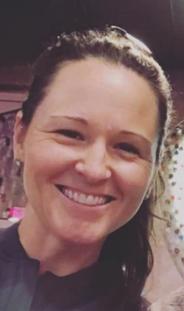
Ashley and her husband, Tim, are co founders of CourtReserve. Tim is a techincal guy. Ashley is a marketing genius. They both LOVE tennis. So they decided to combine their strengths and create CourtReserve

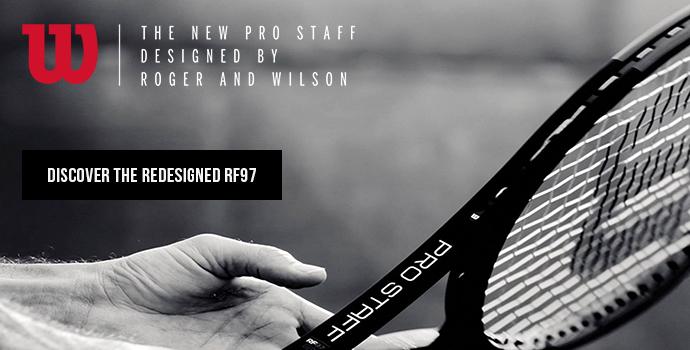


On the grounds of the International Tennis Hall of Fame in Newport, RI, there is a building containing a version of our sport where tennis is played with asymmetrical wooden racquets and hand-sewn balls. We enter the National Tennis Club, where Court Tennis aka "Real Tennis" is housed. This is the oldest operating court in the U.S., dating back to the 1880’s.
The sport is considered the ancestor of modern tennis. It originated in the 12th century, gaining popularity with royals and the upper class of England and France. King Henry VIII of England had a court built in his palace in 1530 which is still in use today. Napoleon built a court near the Palace de la Concorde. Today, there are fewer than 50 courts in the world and approximately ten in the US; two of which are here in New England. In addition to the court in Newport, there is another in downtown Boston at the Tennis and Racquet Club.


the asymmetrical the asymmetrical racquet of court racquet of court ttennis ennis
The Head Professional at the National Tennis Club, at the ITHF, is Wayne Davies, a former court tennis world champion. As the teaching professional, he teaches lessons, staffs the desk, strings racquets, oversees a staff of assistants at nearby Salve Regina University, and sews the balls (yes, he sews the balls!). Wayne explains that since there is such a small demand for balls, they are typically hand sewn at each club.
The club has approximately 100 members who compete at the club, national, and international levels. Understandably, there are very few teaching professionals trained to teach court tennis.


I was one of the lucky players to learn from the master. Over the course of several lessons, I realized the technique was significantly different than traditional tennis. I learned to choke up on the grip of this light wooden racquet, keep my elbow tight into my waist and minimize my follow through. Playing off the walls kept us on our feet, especially for the shots that bounced off the wall behind us! Those shots approached us from behind so we needed to hit the ball in the same direction it was traveling in order to get the ball over the net.
The court is designed to resemble a street or alley with shop awnings, windows, and doors. Serves are directed up on top of one of the awnings and must roll into a designated area on the other side of the court. There is a gulley under the net which conveniently collects balls.

for ball gulley for ball rretrieval etrieval


continued
Wayne explained that the basis for our modern scoring system came from players referencing a clock kept on the court. Quarter past represented 15, then 30, then 45, (which was later changed to 40) then "game". Additionally we learned that the French would reference no score as an egg, “l’oeuf” in French, which then evolved into “love.“ .

At the National Tennis Club there is a viewing area for tourists to watch the matches from above. The club is a living testament to the rich history of tennis, once accessible only to royalty and the elite until present day, available for generations to come.

Kristen recently moved to Rhode Island but was previously a tennis teaching professional at the Cambridge Tennis Club and Woburn Racquet Club. When she was the coach of the Saugus High School Girls’ Tennis team, she was recognized as 2019 and 2021 Northeast Conference Coach of the Year She has also coached collegiate teams at Lesley University and Bentley University. Coach Gerety serves as the Chair of the Public Relations Committee for USTA New England. She is also a certified USTA roving umpire.



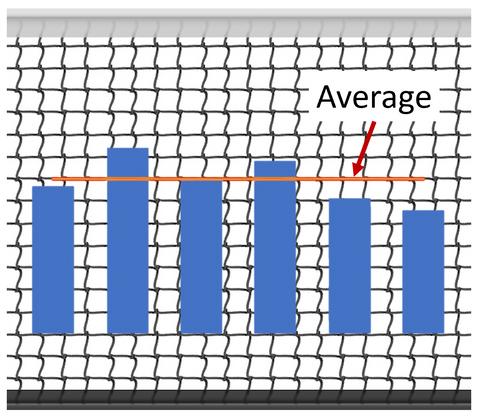 by Bill Previdi; USPTA Elite Tennis Professional
by Bill Previdi; USPTA Elite Tennis Professional

In my 50 years of playing competitive tennis, and 47 as a Teaching Professional I have gained a lot of insight into what makes most players tick, and the way that they undermine their own success. I would like to share some ideas that you can pass on to your students. If your students can implement these ideas they will have more success guaranteed.
Most players think that the best they have ever played is how good they are. They spend their entire tennis career trying to reproduce that one day when everything went right. When they play poorly, many of these same people fear that this is how bad they are. The truth lies somewhere in the middle; you are the average off all the times you play. If the best you’ve ever played is the equivalent of a 4.0 but the worst you’ve played is like a 3.5, then you're around a 3.75. This is an oversimplification but I think you follow my meaning. Stop spending your entire life being disappointed that you're not playing well enough and stop making excuses as to why you’re playing the way you are. It reminds me of something my college coach used to say to us,
“You don’t have to play great to win, you just have to play a little better than your opponents.”
If we can’t count on hitting the best shots every day, then how can we improve our average so we can win more matches? Let’s make sure we do the things we can count on every day, the things that will not waver. Here they are:
Always have the right mindset. The right mindset is to be process oriented and stay present. If you keep hitting set ups, the points will take care of themselves.
Always make the first two shots of every point! Those who follow our teachings know that we constantly say that the average point in doubles lasts 3.2 shots so if you always make the first two shots (serve +1, and return+1) you will be in every match you play.
Don’t be in a rush to end the point. The team that ends the most points always loses!
Once you have mastered shot selection and good decision making there is no reason to ever make bad decisions. Stay with what you’ve learned, trust the process.
(continued on next page)
Your positioning, like your shot selection, is something you can count on every day. Make sure to disrupt your opponents game and exploit their lack of mastery in certain areas (e.g., No one practices what to do against lob returns nor do they have a plan if it happens. You need to attack their weaknesses rather than playing into their strengths).
Work with your partner at all times. You need to be able to trust each other and anticipate each other's moves and shots. No random tennis, no hero ball!
There are only two types of statements you need to make to your partner; I need you, and I’m here for you.
Relax and enjoy the match! If you are doing all the things we’ve listed then just let it fly and have a blast. Every match is new and different and you want to be able to handle everything that comes at you. Good times and tough times. Remember no one becomes a great sailor by always being on calm water.

What you’re probably noticing is that the things that will make you a consistent, reliable winning player and team are all things that you can’t see. How many times have you heard someone say what great strokes an opponent has or how hard they hit? You hear it all the time. We tend to discount the intangibles, the things we can rely on on a daily basis.
Another interesting thing about playing in a systematic way is that by consistently putting your opponents in difficult situations you will make it harder for them to play at or above their average! As you help them to play worse you won’t have to play as well to win. You will have much more consistent results because your game won’t be going up and down like a roller coaster. Your opponents will know before you even start that they’re in for a tough time. Many, if not most matches, are lost before they even start.
To sum up, in order to play above our average we need to:
Limit unnecessary mistakes. Make good choices. Work with your partner tactically and by letting them know you’re there for them no matter what. Be disruptive. Relax and enjoy the process.
Bill Previdi has developed The Previdi System: Doubles for the Smart Player. He specializes in teaching adult, competitive doubles players, and has presented at USPTA conferences around the country. He, and his son, Matt, are annually on the faculty at The Tennis Congress, the largest program for adult players in the nation. www.theprevidisystem.com





Congratulations to Tammy Azur who was awarded the 2021 USTA NE Junior Provider of the Year Tammy, a USPTA Elite Professional, is the Tennis Director at The Edge Sports and Fitness in Vermont. Tammy led two different Junior Team Tennis teams to USTA New England Sectionals this past August. As a dedicated volunteer, Tammy serves on the USTA Vermont of Directors, is the co chair of the Vermont State League Committee, and is on the Vermont Junior Committee.

Wilbur Shardlow, a USPTA Elite Tennis Professional, has been a USRSA (United States Racket Stringers Association) "Master Racket Technician" (MRT) for 27 years He recently completely his "Master Professional Stringer Level 1" certification from the ERSA (European Racket Stringers Association) along with a "Professional Master Stringer" certification from the GRSA (Global Racket Stringers Association). He is also a member of the IART (International Alliance of Racket Technicians). He and his brother, Bill Shardlow (also a USPTA Elite Professional) operate New England Racket Services with locations in Portland and Augusta, Maine.

USPTA Master Professional, Avis Murray, raised $6,000 for Play for Pink Play for Pink raises money for breast cancer research. Avis ran three tennis and pickleball round robins at the Bass Rocks Golf Club, in Gloucester, MA.


Nestor Bernabe has been named the Head Coach of the Bryant University Men's Tennis Team Nestor is a USPTA Elite Professional who is also the owner and director of the Providence Tennis Academy.








